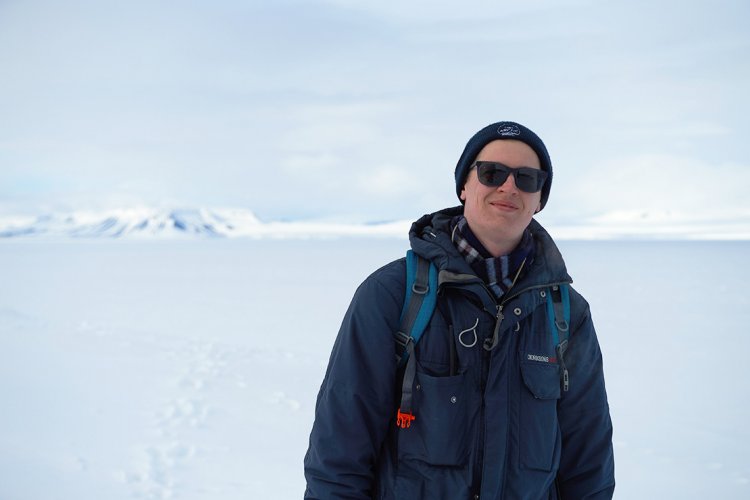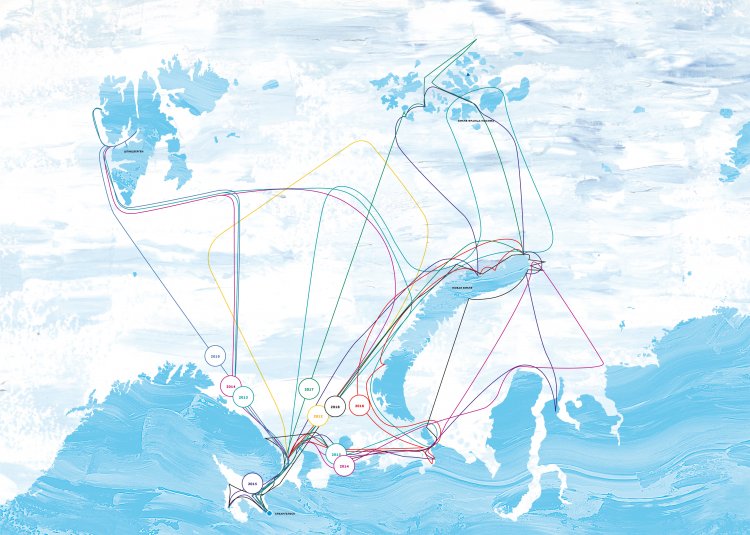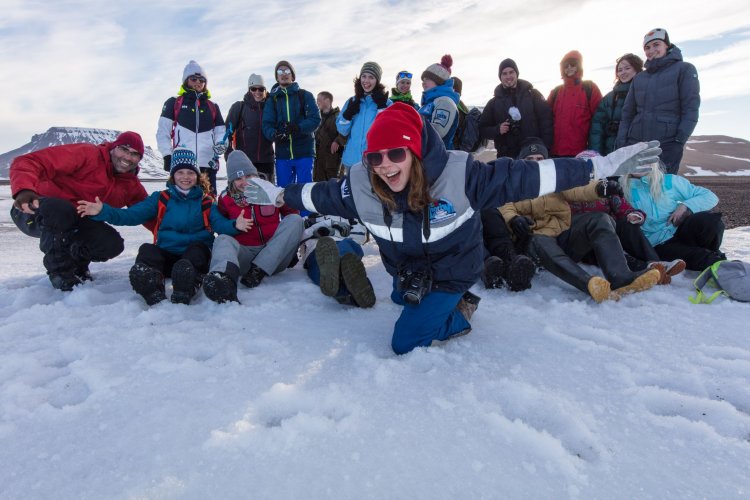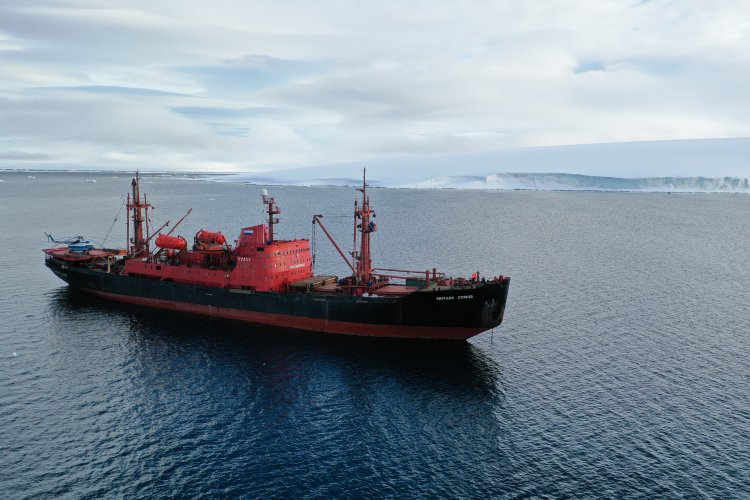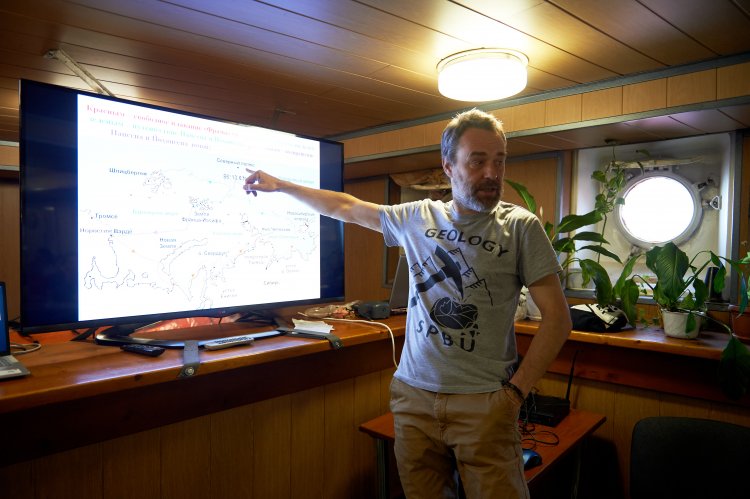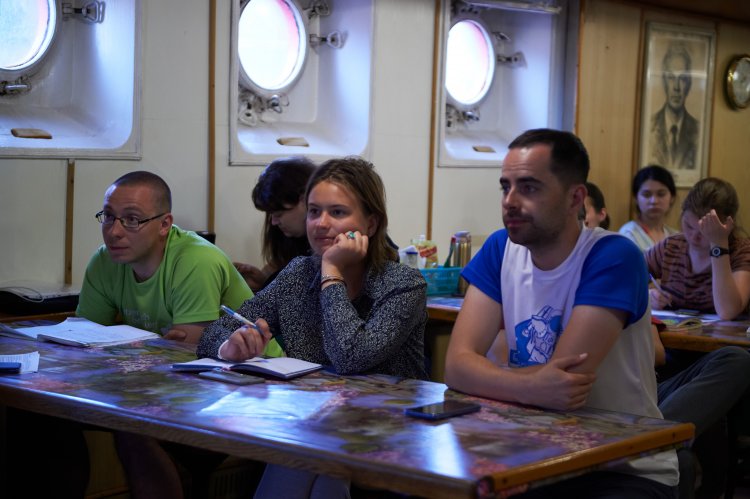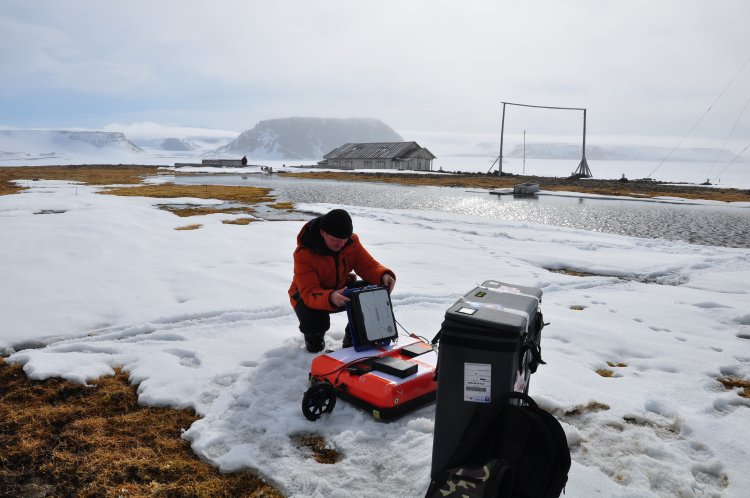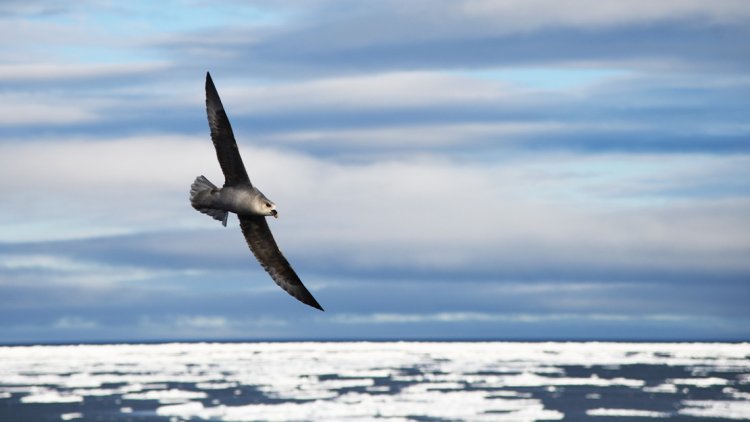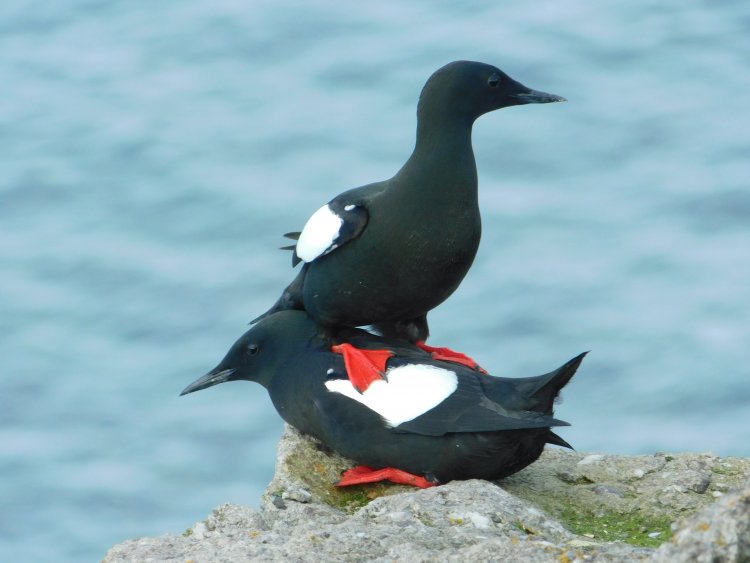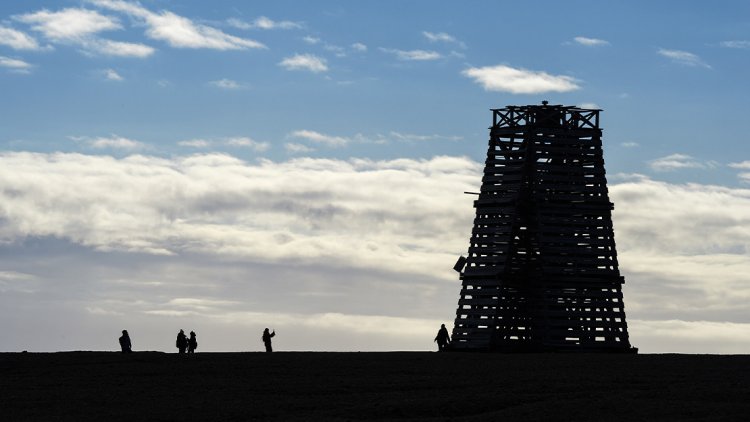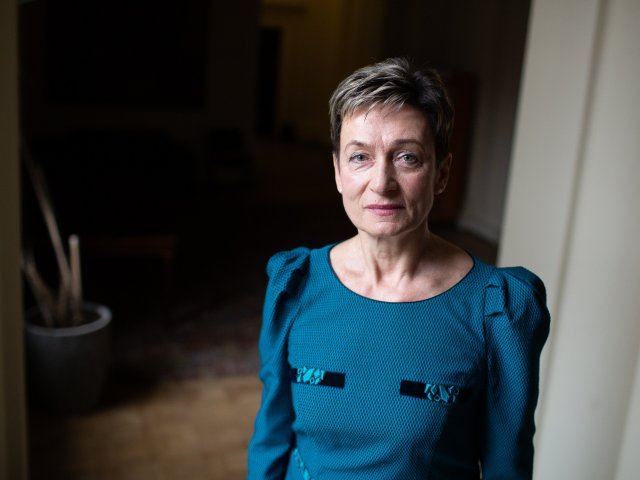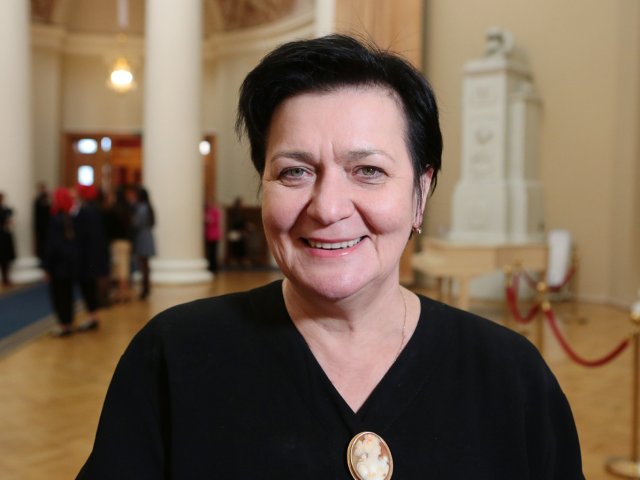Over the past decade, young researchers, students, and postgrads from all over Russia have been undertaking expeditions to the northern seas onboard research vessels Professor Molchanov and Mikhail Somov. Ever since Northern (Arctic) Federal University (NArFU) launched its Arctic Floating University project in 2012, one to three expeditions per season have set off from Arkhangelsk each year except for the pandemic year 2020.
What research do Arctic Floating University scientists carry out in their expeditions? Who can participate in the project? How does the project help to attract young people to science? Alexander Saburov, Candidate of Science (PhD in History), Director of the Arctic Center for Strategic Studies, and head of Arctic Floating University expeditions answers these questions.
Alexander Saburov
– How did the Arctic Floating University project appear? What goals and ideas underpinned its launch in 2012?
– Our university, NArFU, was established in 2010, and its key research area was Arctic exploration. In this regard, Elena Kudryashova, the rector of NArFU, and Alexander Frolov, the then head of the Federal Service for Hydrometeorology and Environmental Monitoring (Roshydromet), came up with the idea of the Arctic Floating University project. They decided to revisit the practice of floating universities as a form of academic expeditions. In the 1990s, Alexander Frolov participated in the UNESCO-MSU Floating University project. This experience was used to launch the NArFU and Roshydromet joint project in the Arctic seas. Over the past decade, the project has proven useful and effective in terms of research, education, and science popularization. The Russian Geographical Society and Russian Arctic National Park are its committed partners.
– What are these expeditions like? What goals do they target?
– The primary goal of such expeditions is to train young professionals and provide them with hands-on research experience. Young people, those who plan to work in the Arctic, for example, in Roshydromet or the academic community, should know what to expect. It is important that they understand if it is their cup of tea and learn to work with scientific equipment.
Another goal relates to scientific research: today, the Arctic is of great scientific significance both for Russia and the globe. The region is strongly affected by climate change, which is much more pronounced here and evolves faster than, for example, in Central Russia. Effects of human activities are likewise strongly pronounced in the Arctic: various pollutants brought from other regions impact the local ecosystems and biodiversity. Therefore, it is critical for us to conduct ongoing cross-disciplinary monitoring here.
During expeditions, researchers enjoy an opportunity to collect samples and materials, and conduct research to create a holistic picture of the Arctic today. From the standpoint of logistics, the region is a challenging one: there are no regular flights or maritime traffic here and so the Arctic Floating University has become the platform that brings together the resources of various stakeholders.
The Arctic Floating University expeditions mainly take place in the White, Barents, and Kara Seas. Its agenda likewise includes archipelagos Novaya Zemlya, Franz Josef Land, Svalbard, and the coastal area of the western part of Russia’s Arctic territory. Dickson Island is the easternmost point that our expedition has ever reached.
We strive to maintain a balance between offshore and onshore research. A traditional expedition normally includes four to five coastal missions, around 10 hours each. In the long run, we try to adjust the agenda to the plans and research goals of all stakeholders.
As a rule, expeditions take place in the summer, which is the most favorable season for navigation in terms of ice conditions. We use two research vessels provided by our committed partner, Roshydromet: R/V Professor Molchanov and R/V Mikhail Somov. All expeditions are planned in advance: we obtain necessary permits, address technical and financial issues, conduct a competitive selection of participants – researchers, educators, and students – check out their planned research activities, and develop the expedition agenda accordingly.
This year the competitive selection ended on March 31st with more than three applicants per vacancy: almost 180 applications from 67 organizations from Kaliningrad and St. Petersburg to Irkutsk and Chukotka. This was a record-high number of scientific and educational institutions willing to take part in our project. 40 applications were filed by our university’s specialists and students.
– Who has the highest chances to pass the competitive selection and get onboard?
– When it comes to researchers, we prioritize those who can deliver the best scientific outcome on the one hand, and contribute to the academic part of the agenda on the other. The idea is thus to provide students with theoretical, fundamental, and applied knowledge. We evaluate the research potential of our applicants based on their past expedition experience, practical skills, and academic work.
Students willing to join the expedition must have their own research plan, which is assessed by the admission board. Students with good academic performance, recommendations from their research supervisors, and an interesting and relevant research plan have the best chances of admission.
– Living and working aboard is associated with many limitations which might be unsuitable for some people. Have there been situations when after completing an expedition, a participant would say “I’m out, it’s not my cup of tea”?
– Expeditions are carried out in relatively favorable conditions, for example, we do not practice polar wintering. However, participants can encounter certain challenges such as sharing an enclosed space with other people: students are accommodated in three- or four-bed cabins. Interacting with the same people every day is psychologically challenging: most participants cope with it, but some of them might have a hard time.
Besides, there are challenges typical of any sea expedition such as seasickness. We must always keep in mind we are in the Arctic, and its unpredictable conditions make it hard to plan anything. Sometimes a scheduled coastal mission fails due to the ice conditions or stormy weather. Researchers must be prepared for such situations and be able to adapt to them.
Most of the applicants are well aware of what they may encounter: we conduct admission interviews and talk about possible challenges. On the whole, students and young researchers see the beauty of the Arctic and its nature and get inspired to continue their work at high latitudes. This is much more important than those situations when someone finds the expedition life unsuitable.
– The Arctic Floating University does a great job engaging young people into science, doesn’t it?
– This is what we target. Over the past decade, we have seen some inspiring cases when one would join an expedition as a student, continue as a postgraduate, and now works there as a researcher. This is an opportunity for many people to unlock their potential.
The popularization of science on the Internet is great, but it is difficult to inspire real commitment until one engages in hands-on operations and gets the opportunity to conduct scientific research with equipment. In this regard, expeditions are critically important.
– What is the key priority of such expeditions? Are they mainly scientific or educational?
– This is a scientific and educational project and I would not single out any of the components: they are equally important for us and closely intertwined.
Future scientists, those who will work in the Roshydromet system, cannot be trained in classrooms only. Starting from college age, they must carry out their own research or be a part of larger research projects to see how science works in practice. This is a rather complex issue from an organizational point of view.
– Today, the Arctic is an interesting region in many scientific aspects. Which research areas are prioritized in the Arctic Floating University projects?
– Environmental issues are among those important areas that we have been working on in expeditions for quite a long time. That is, everything related to environmental pollution. We distinguish two research focuses in this regard.
The first one relates to organic and inorganic pollutants in objects of wildlife and inanimate nature, and the NArFU researchers contribute a lot to this field. They examine water, soil, and snow to find out how pollutants are carried across food chains by fish and birds and take blood samples from the local population; such work was carried out, for example, on Vaygach Island. Another focus is plastic pollution, including the microplastic one. It was during the expedition of our floating university that scientists from the Arctic and Antarctic Research Institute conducted the first research on microplastic content in the Russian Arctic seas. The research was conducted in 2018 and is now replicated on an annual basis.
The second major research focus relates to biodiversity and primarily to microbiology. Scientists from the St. Petersburg Institute of Experimental Medicine, Moscow Institute of Physics and Technology, and the Kurchatov Institute participate in the expeditions. Microbiology in the Arctic regions is a largely under-researched area that has great potential. For example, the antibiotic-resistant strains of bacteria that circulate here can be transferred. This is a very interesting topic.
Ornithology is yet another biodiversity research area. As a rule, each expedition team has an ornithologist who studies bird colonies and their evolution. Almost every year, scientists discover a bird species that has never been seen in the Arctic before.
The third research is associated with the climate. It is a relevant topic today, and we have begun to prioritize it even stronger since last year. This research area also includes traditional oceanology research. Scientists analyze temperature, salinity, and other water parameters and record the data in the database.
There were two remarkable studies on climate last year. A researcher at Moscow State University analyzed the carbon balance in soils on Novaya Zemlya and Franz Josef Land. Another study focused on identifying a suitable site for the installation of a permafrost monitoring station.
These are three major research areas of the floating university expeditions: environment, climate and biodiversity.
– Russia has introduced the 2035 Strategy for Developing the Russian Arctic Zone. Are the expedition studies in line with addressing the goals of this program?
– All three research areas that I have listed above are reflected in the Arctic Strategy. This program places a strong focus on climate, pollutant transfer, and biodiversity issues.
Moreover, one of the strategy’s sections is devoted to international expeditionary research, and the Arctic Floating University is one of the tools to address this goal.
– What outcomes have been achieved by the expeditionary projects throughout the past decade?
– Firstly, the information on the Arctic is valuable in and of itself as it is used to build long-term data series and understand what changes we should expect in the hydrological regime and the atmosphere of the Arctic environment. It may not give an instant wow effect, but science is all about such systematic observations.
Secondly, there are some exciting research results reported by scientists on expeditions. Here, I would mention the research on biodiversity carried out in 2021, in the frame of which, anti-resistant strains were found in the samples obtained during the expeditions of the floating university. These strains can be carried by migratory birds. More specifically, they relate to the digestive tract of Anseriformes. This is the kind of research performed by scientists of the Institute of Experimental Medicine.
Researchers at the Institute of Geography also reported interesting results in microbiology in 2016 and 2017. For the first time, they discovered endoliths in the Arctic; these are microbiological communities that live in rocks and survive in extreme conditions by using the sun’s energy only.
As for the ecology, expedition researchers have begun to study traces of microplastic in the Arctic. They reported sad but important information last year when they were exploring marine debris on the coasts of Novaya Zemlya – a huge amount of waste came in with currents, most likely from the Atlantic Ocean. The research design suggests that researchers examine areas of 100 meters. Several bags of garbage of non-local origin were found on one of these sites. Preliminary analysis has revealed that this garbage, which mainly consists of packing waste, is most likely to come from Europe. Marine pollution is of course one of the biggest environmental problems humanity is now facing.
– Does the Arctic Floating University carry out humanities research? For example, do you study the culture or languages of the northern peoples, conduct archaeological research?
– The point is that expeditions of the Floating University mainly take place outside current or former settlements where such studies could be carried out.
However, the NArFU scientists conducted an interesting applied study last year to determine the wood resource in the cultural heritage sites of the Arctic. In particular, there are polar stations at Cape Zhelaniya on Novaya Zemlya and on Franz Joseph Land. These sites have buildings dating back to the 1930s and to the first European expeditions in the late 19th century. Naturally, they are of great value, but we are unable to study them on an ongoing basis.
Last year, expedition researchers inspected the condition of the wooden buildings: how suitable they were, their life expectancy, and repair and maintenance services required. This data was transferred to the Russian Arctic National Park responsible for the territory on which the buildings are located. Hopefully, they will decide to ensure proper maintenance of these buildings.
– What research activities are planned for the 2022 expeditions? Are these follow-up studies or fundamentally new projects?
– This year, we plan to have two expeditions.
The first one will be held in the Arctic Floating University classic format: about 50 people will stay for almost three weeks, from June 24 to July 11, onboard R/V Professor Molchanov near Novaya Zemlya. We have scheduled a standard agenda for this expedition. These are the core research areas that I have already described: follow-up or identical studies on climate, ecology, and biodiversity. The expedition is sponsored by Norilsk Nickel, Novatek, and VTB, as well as the Government of the Arkhangelsk Region.
The second expedition will take place in July–August in a less traditional format: its mission will be to deliver supplies to the Roshydromet polar stations. A small group of researchers, 17 people, will work onshore – rather than offshore – primarily on Franz Josef Land. Rosneft is the official sponsor of this expedition.
– Are there any alternatives to the Arctic Floating University? Or is it a unique academic project of this kind?
– The first floating universities appeared in 1990. They were launched by UNESCO and Moscow State University. There was also the Baltic Floating University. In the meantime, a maritime expedition is a very costly endeavor and so the expeditions were irregular, the intervals between them would get longer and, at a certain point, there was a really long gap.
The Arctic Floating University was introduced in 2012. The project has been operating on a regular basis for a decade, except for the 2020 pandemic. We do not seek a monopoly in this area and would be happy to see the floating university movement growing. Last year, the Institute of Oceanology and Moscow State University launched their expeditions, including those to the Arctic.
The specific feature of our expeditions is that we do a lot of coastal research, whereas our colleagues mainly focus on marine research. Anyway, the Arctic is a priority today, and marine research constitutes an important part of science. A single expedition is not enough to obtain the necessary amount of information for specialists’ training and work.
We can surely say that floating universities are unique projects on a global scale. We have not come across foreign programs that would combine both research and educational components, so this experience can be justly called the Russian know-how.
– How do you envision the future of the project?
– The project has proven itself both in terms of the practice of floating universities in general and the Arctic Floating University in particular.
We understand that the interest in the Arctic, its unique ecosystems and climate changes will remain in the coming years. This is a long-term trend, so the study of certain fundamental disciplines in this area is essential. The vision of the Arctic as the resource repository of Russia will likewise remain. Here, we need ecologists, oceanologists, and geologists, both experienced and young researchers. Floating universities are just perfect for hands-on training of young professionals.
We are very optimistic about the future of the project and its potential for both Russia and global science.
All photos were provided by Alexander Saburov
